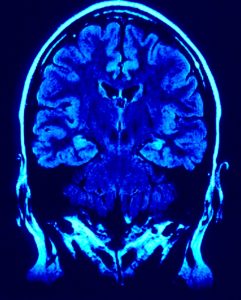- Free Consultation: 760-571-5500 Tap Here to Call Us
Mild Head Injuries Cause Long-Term Impairments

We know that multiple concussions can result in irreparable, long-term damage. Chronic traumatic encephalopathy (CTE), a degenerative disease of the brain, is now a condition that we know results from sustaining repeated traumatic brain injuries (TBIs), both in contact sports and elsewhere. But what about “seemingly mild, concussion-type head injuries” that happen only one time? According to a recent news release from the University of Pennsylvania, researchers now acknowledge that sustaining what we might call a mild TBI actually can “lead to long-term cognitive impairments surprisingly often.”
Brain Protein Discovered That Signals Cognitive Impairments According to the news release, researchers have discovered a brain protein known as SNTF. It can show up in the blood after a patient sustains a mild TBI, but it does not show up in all cases of concussions. Researchers believe that the presence of SNTF “signals the type of brain damage that is thought to be the source of these cognitive impairments.” A team of researchers from the Perelman School of Medicine at the University of Pennsylvania and the University of Glasgow (in the UK) recently reported these findings.
One of the authors of the study elaborated on the significance of SNTF, noting that “the brain protein specifically indicates the presence of nerve fiber damage that we call diffuse axonal injury.” While that kind of an injury may not be clear to someone without specific medical knowledge, the researchers emphasize the underlying point of that finding: “even relatively mild, concussion-type brain impacts can cause permanent damage of this kind.” We do not need to be able to identify the brain protein ourselves to understand that it is a marker of a potential long-term battle with the repercussions of a head trauma.
To better understand what the researchers mean by a diffuse axonal injury, we can take a closer look at some previous research into such brain damage. As the news release explains, a diffuse axonal injury happens when the brain moves suddenly as the result of a TBI. Bundles of axons that are connected to specific regions of the brain get stretched rapidly, the news release articulates. When these axons get stretched rapidly, they can become deformed, which can result in “abnormal inflows of sodium and calcium ions that help regulate a neuron’s function.” When calcium levels are too high, a “self-destruct process” is triggered, which can ultimately result in the severing of nerve fibers.
Blood Tests May Help Physicians to Treat Head Trauma What is the significance of the recent finding? It suggests that physicians might ultimately be able to use blood tests after a patient suffers a bump or blow to the head in order to determine whether that patient may have a diffuse axonal injury. And if a physician can diagnose a diffuse axonal injury, she can help to better predict a patient’s level of cognitive impairment as a result of the TBI.
Sustaining a concussion—whether as a youth athlete, a military service member, or as an adult civilian who does not participate in sports—can have lifelong consequences. If you or a loved one suffered a mild brain injury because of another person’s negligence or wrongful act, you may be able to file a claim for financial compensation. Do not hesitate to discuss your case with an experienced California brain injury lawyer. Contact the Walton Law Firm to learn more.
See Related Blog Posts: Future of High School Football and Brain Injuries in California Would a Soccer Heading Ban End Traumatic Brain Injuries?









